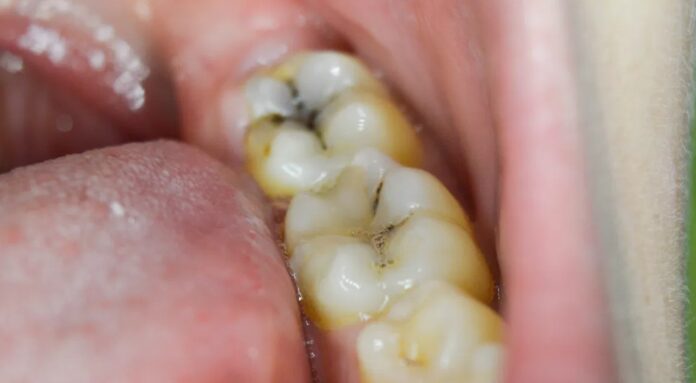Tooth decay is the process by which a tooth breaks down, usually due to the build-up of plaque. Plaque is a sticky film of bacteria that forms on teeth. The bacteria in plaque produce acids that eat away at the tooth enamel, causing cavities. Tooth decay can also occur below the gum line, causing the root of the tooth to become exposed. This can lead to pain and sensitivity. Several factors can increase the risk of tooth decay, including poor oral hygiene, diets high in sugary or acidic foods, tobacco use, dry mouth, and certain medical conditions. The best way to prevent tooth decay is to brush and floss regularly and see a dentist for regular checkups.
How can you prevent tooth decay from happening
Tooth decay is a serious problem that can lead to pain, infection, and even tooth loss. Fortunately, there are several things that you can do to prevent it from happening. First, be sure to brush your teeth at least twice a day with fluoride toothpaste. Fluoride helps to strengthen tooth enamel and make it more resistant to decay. Secondly, floss your teeth every day to remove plaque and bacteria from between the teeth. Third, eat a healthy diet that is low in sugar. Sugar causes plaque to build up on teeth, which can lead to decay. Finally, see your dentist regularly for checkups and cleanings. By following these simple steps, you can help to prevent tooth decay and keep your smile looking its best.
What are the signs of tooth decay and how do you treat it
Tooth decay is a serious problem that can lead to a number of health complications. The early signs of tooth decay include sensitivity to hot and cold temperatures, as well as to sweet or acidic foods. The teeth may also appear yellow or discolored. If tooth decay is not treated, it can progress to cavities and eventually to gum disease. Treatment for tooth decay depends on the severity of the problem. In mild cases, fluoride treatments may be all that is needed. More serious cases may require a filling, root canal, or even extraction. Therefore, it is important to see a dentist at the first sign of tooth decay. By getting treatment early, you can avoid more serious problems down the road.
Can tooth decay go back to normal if you take care of your teeth properly
Tooth decay is a common problem that can occur when the hard outer enamel of the teeth is softened by acid. This can happen when plaque builds up on the teeth and breaks down the enamel. Once the enamel is softened, bacteria can begin to break down the dentin, which is the inner layer of the tooth. If left untreated, tooth decay can eventually lead to cavities. However, tooth decay is ultimately reversible if it is caught early enough and treated properly. Regular brushing and flossing can help to remove plaque and prevent tooth decay. In addition, regular visits to the dentist can help to identify problems early and prevent them from getting worse. By taking care of your teeth, you can help to prevent tooth decay and keep your smile looking its best.
How often should you visit the dentist for a check-up
Generally, people should visit the dentist every six months for a routine cleaning and check-up. However, some people may need to visit more often if they have gum disease, a history of cavities, or if they are at risk for other dental problems. During a routine visit, the dentist will clean your teeth and check for any signs of decay or other problems. They will also take x-rays to look for any problems that can’t be seen with the naked eye. If you have any concerns or questions about your oral health, this is a good time to ask the dentist. They can give you advice on how to brush and floss properly, and they can also recommend specific products that can help with oral hygiene. Ultimately, visiting the dentist regularly is an important part of maintaining good oral health.
Tooth decay is a serious issue, but it can be treated and reversed. If you have tooth decay, don’t panic – seek treatment from your dentist as soon as possible. With early intervention, tooth decay can be stopped in its tracks and even reversed. By following your dentist’s instructions and practicing good oral hygiene habits at home, you can keep your teeth healthy and cavity-free for years to come.






